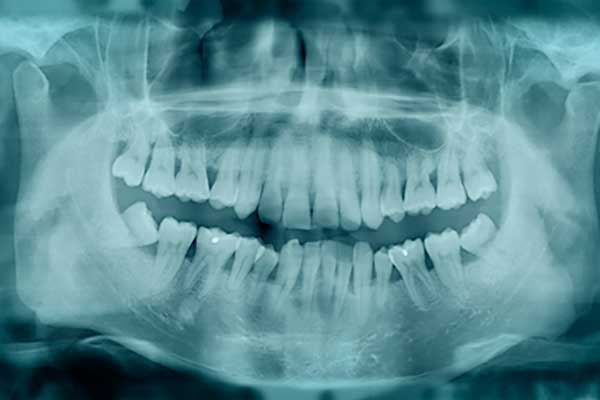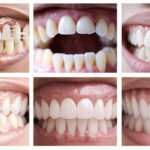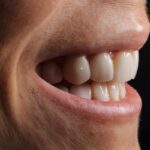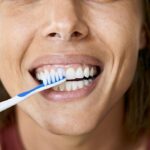Back in 2012, Mercedes White at Deseret News related a story that highlights just how important teeth can be to a professional image.
A counseling office in Utah had been searching for a front desk assistant for their office. They had already passed up on a string of candidates before one 35-year-old mother came in for an interview. The entire office loved her and thought she would be a good fit. Management disagreed, saying that the candidate’s bucked and crooked teeth did not fit the image the clinic wanted to project.
This story shows the unfortunate reality of dental appearance: Employers often make unfair assumptions about job candidates with irregular teeth. Consciously or not, many managers may see the external appearance of crooked, yellowed or chipped teeth as an indication of internal character. They may see job prospects with irregular teeth as lazy, exhibiting a lack of discipline, or at least having a lack of confidence.
The story is one of many examples of unfair assumptions made about irregular teeth and dental conditions. Here, we dive into how these unfair assumptions take shape, the factors at play and how to address this unfortunate reality.
For starters, how does this unfair judgment actually take shape?
How Humans Judge Each Other, and How Teeth Play a Role
A more recent news report from Jonel Aleccia at NBC News echoes the findings of White. “In America, most people – including employers – make instant judgments based on appearance, including someone’s smile and teeth,” Aleccia writes. This sentiment is supported by both anecdotal and academic evidence.
In the report, Aleccia quotes Susan Hyde, a dentist, and a scientist at UCSF. “If you want to portray someone as being wicked, they have missing front teeth. If they’re ignorant, they have buck teeth,” said Hyde. “Even from a very early age, we associate how one presents their oral health with all kinds of biases that reflect some of the social biases that we have.” Hyde also noted that a lack of guaranteed dental care made it difficult for adults to address missing, discolored, broken or badly crooked teeth.
The negative impact of having irregular teeth on your chances of employment are unequivocal. “You could be the perfect candidate for the role, but if your teeth are in bad condition, they are very unlikely to hire you, especially if it is a customer-facing role,” says Let’s Reach Success, a personal and business growth blog. “Companies do not like to hire people with bad teeth if they are going to be doing face-to-face interaction with customers on a daily basis.”
The studies agree. According to a survey from Kelton Global, two in five Americans would not go on a date with someone with crooked teeth, and half of Americans believe those with crooked teeth are less likely to land a job.
“Whether we like it or not, we are often judged by our appearance,” says Dr. Michelle Callahan, a development psychologist with a focus on relationships. “The results prove what I’ve always believed, which is the importance of an attractive, healthy smile, whether you’re socializing and networking face-to-face or virtually.”

The Quality-of-Life Effects of These Judgements
This unfair judgment of irregular teeth may also be compounded with other assumptions — those that former inmates face when coming out of prison, for example.
“For recently released inmates already carrying the social burden of a criminal record, dental problems can exacerbate the daunting challenges involved with returning home, such as finding employment and housing,” writes Taylor Elizabeth Eldridge at The Marshall Project, a nonprofit news agency focusing on criminal justice.
Eldridge relates the stories of several former inmates and the discrimination they faced due to missing or rotted teeth. More often than not, the irregular teeth were due to improper or insufficient dental care during incarceration. One story was from Albert Pugh, who wore an ill-fitting denture for a time — and felt the assumptions from employers until he was able to receive implants. “When you get your teeth back, you can smile with confidence,” said Pugh.
This unfair judgment is not limited to the shape of your smile. It can also extend to color. According to a study from UK researcher Peter G. Robinson, even the appearance of dental decay can lead to judgments about someone’s personality. In his study, with whitened teeth faced a more positive reaction than those with more natural enamel color.
More than anything, this shows that even when irregular teeth don’t have an impact on your overall health they can have a negative impact on employment opportunities.
There are exceptions, however. For example, one study in 2018 from UK researchers Michaela McErlain, J. Timothy Newton and Huw G. Jeremiah addressed whether or not dental appearance affects employment prospects. The study concluded that an irregular dental appearance did not have a negative impact on job prospects — though the study was limited to removing just one incisor in images attached to the CVs.
Why It’s Important: The Factors at Play for Irregular Teeth and the Workplace
The impact on irregular teeth on job opportunities is already clear. And while having irregular teeth is not uncommon in the US, that doesn’t stop many employers from discriminating based on their unfair assumptions about job candidates with irregular teeth.
“Studies show bad teeth prevent otherwise qualified candidates from getting jobs or promotions,” White went on to write. “Although the U.S. is on the cutting edge of innovations in dentistry, many Americans have poor oral health and crooked or missing teeth and don’t go to the dentist because they don’t have insurance and can’t afford to pay out of pocket for care.”
The problem continues to be widespread since nearly half of Americans do not have dental insurance. The result is a workforce that faces negative stereotyping of their irregular teeth whenever it’s time to seek a new job at a new company. This is clearly an unfair disadvantage, especially considering many in the workforce do not have access to the corrective procedures they may need.
“The barriers to oral health include lack of access to care, whether because of limited income or lack of insurance, transportation, or the flexibility to take time off from work to attend to personal or family needs for care,” reports the National Institute of Dental and Craniofacial Research.
The result is an unfair disadvantage in employment opportunities from the very start. The Canadian job board Workopolis makes this clear: “In the first four seconds of meeting someone we decide four things about them: Do I like them? Do I trust them? Are they safe? Who do they remind me of?”
With these barriers in mind, what are some ways to counteract the unfair assumptions about irregular teeth that we’ve seen here?

Counteracting These Unfair Assumptions
The studies above make it clear that employers hold some very unfair assumptions about job candidates with irregular teeth. If you think you may in that category, the good news is you’re not without options. Tracey Sandilands at Colgate makes it clear that there are a host of ways to address misshapen or irregular teeth.
Whether you have a yellowed smile or a severe underbite, you can work with the right cosmetic dentist to find more confidence in your smile. For instance, Colleen Smith at Today writes about how she chose to get braces at 35 — and loves her decision. Naomi Garnice at The Muse tells a similar tale: “Even a month or two into treatment, I’d already noticed an extra boost of confidence from my teeth moving into the right alignment.”
Cosmetic dentistry or surgery is not always necessary. You may be perfectly happy and healthy with the bite and smile you currently have. But if you find that irregular teeth are holding you back with employment opportunities, it is an option to consider. You can address those unfair assumptions from potential employers head-on.
Images by: antoniodiaz/©123RF Stock Photo, antonioguillem/©123RF Stock Photo, gstockstudio/©123RF Stock Photo









